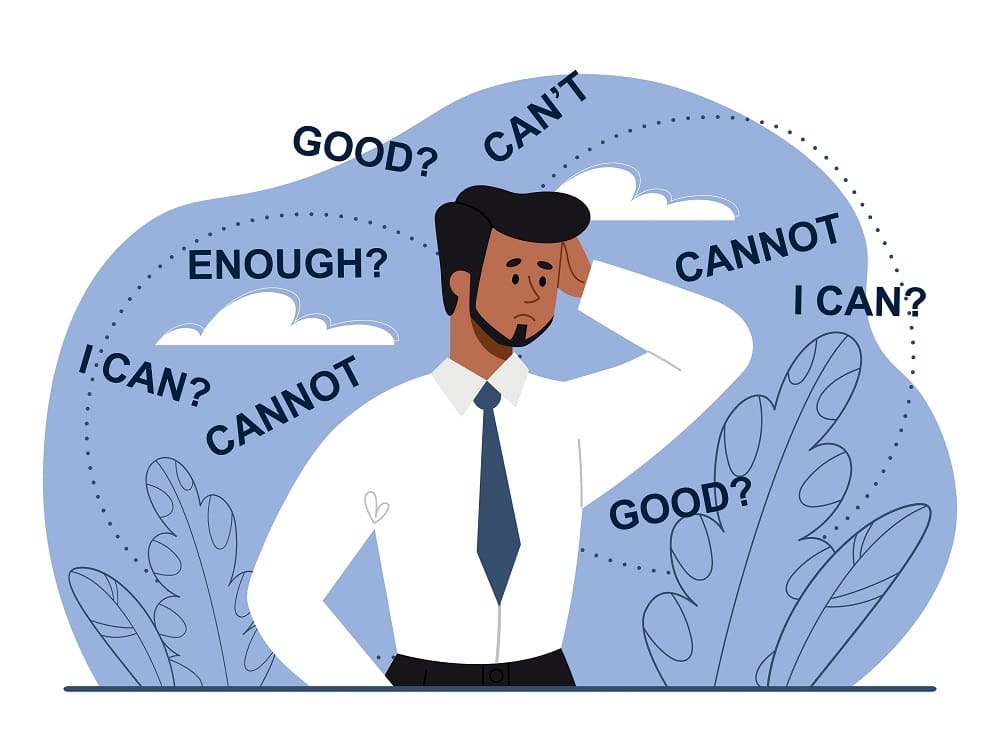Getting Over Imposter Syndrome as a Trader
Getting Over Imposter Syndrome as a Trader
Written by Katie Gomez
Humans are complicated creatures. We are blessed with the urge to improve, grow, and learn, yet burdened with the impulse to compare ourselves to others, never finding contentment as the pedestal we reach for moves higher and higher. This constant inner battle leads to a term most of us are familiar with: imposter syndrome. This phenomenon can manifest in any profession—from law and medicine to acting, singing, and stock trading. In this article, I will discuss how imposter syndrome can manifest in the world of trading and how to overcome it.

Understanding Imposter Syndrome
Imposter syndrome stems from feeling inadequate or doubting your abilities in your chosen field, despite any evidence to the contrary. Many people assume they can outsmart or outrun imposter syndrome. However, it is an internal problem, meaning no amount of experience, money, success, or praise can eliminate it. Overcoming imposter syndrome requires conscious effort, involving mindset shifts, practical strategies, and enhanced self-awareness.
How Imposter Syndrome Affects Trading
At first glance, imposter syndrome might seem like a self-effacing, even endearing quality. Over time, however, this relentless self-doubt can metastasize, turning humility into a massive confidence crisis. When you start questioning your credibility as a trader, you lose confidence. Soon, you begin to doubt every decision you make, convincing yourself you don’t belong. Imposter syndrome is a slippery slope best dealt with immediately, lest it fester and push you away from something you excel at.

Tips for Overcoming Imposter Syndrome
Tip #1: Acknowledge It
Yes, the first step is admitting you have a problem. Acknowledging that you have imposter syndrome is essential for overcoming it because self-awareness diminishes its grip on you.
Tip #2: Challenge Negative Self-Talk
Pay attention to your inner dialogue. Once you recognize that this voice isn’t based on facts but is an internal struggle with self-efficacy, it becomes easier to challenge these thoughts. Ask yourself for evidence supporting these feelings and counter them with proof of your accomplishments, skills, and knowledge.
Tip #3: Redefine Failure
Focus on your successes rather than fixating on perceived failures. Failure is part of the process in trading. If you remain stuck in the past, how can you learn from mistakes and move on? Embrace moments of uncertainty as opportunities to learn and grow.

Tip #4: Keep a Record of Achievements
Consider your brain as a debate forum where thoughts vie for attention. When fighting negative thoughts, arm yourself with evidence of your competence. Keep a journal or document where you record your successes, valuable lessons learned, and trades that went well.
Tip #5: Stop Comparing Yourself to Others
Comparison is the thief of joy. Trading requires confidence, which is hard to build if you’re comparing yourself to others. Remind yourself that everyone’s journey is unique and success is not linear.
Conclusion
Imposter syndrome is a hindrance that can seriously impact a trader’s career if left unattended. The resolution lies within you, originating from a deep subconscious belief that you’re not good enough. Remember, the only person you need to prove yourself to is you.
